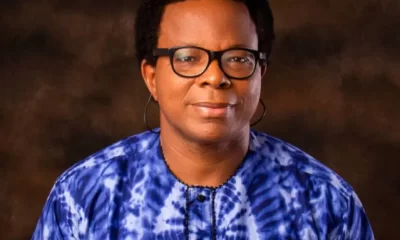National Issues
Just Asking: Should Drug Offenders Face The Death Penalty? -By Isaac Asabor
According to the Punch newspaper in its editorial of May 24, 2024, titled, “Death penalty for drugs too harsh” wrote, “Rightly, the bill shows that the Senate is concerned about the growing spread of drug trafficking in the country, but the proffered legal solution may not solve the problems.

In the heart of Nigeria’s legal system, a fierce debate rages on: Should drug offenders be sentenced to death? The stakes are high, and the arguments are as diverse as the nation itself. Delving into this contentious issue, exploring the moral, legal, and practical dimensions that shape the conversation will in this context reveals much on its advisability or inadvisability for drug offenders to face death penalty.
Without a doubt, Nigeria has a long history of grappling with drug-related crimes. From trafficking to possession, the courts have faced an uphill battle in meting out justice. But when it comes to capital punishment, the lines blur.
The reason for the foregoing view cannot be farfetched, particularly perspective of the current situation. As it stands, drug offenders in Nigeria are by law made to face the death penalty, one would be compelled to ask if the approach would be effective in curbing drug-related crimes? The saliency in the question further deepens as critics argue that death penalty has in other countries where such draconic law exist fails to address the root causes and disproportionately affects vulnerable populations.
Closely related to the foregoing view is that advocates for abolishing the death penalty emphasize human rights, even as they argue that every life has inherent value, regardless of the crime committed. Therefore, they were unanimous in their view that executing drug offenders, violates this fundamental principle.
Of more concern in this context is that proponents of the death penalty claim that it serves as a deterrent. But evidences from other countries suggest otherwise. Perhaps a focus on rehabilitation, education, and addressing socio-economic factors would yield better results.
For the sake of clarity, it is expedient to explain in this context that the inspiration behind the expression of this piece came to this writer as Nigeria is moving to make drug-related offenders pay the supreme penalty. Not quite long ago, particularly within this month, May 2024, the Senate amended the provisions of the 2004 National Drug Law Enforcement Agency Act for the death penalty for drug-related offences. Since the move was made, not a few Nigerians are opinionating that the move points to a return to the military era in which the death penalty was deployed to curb drug trafficking, further arguing that it is a harsh provision and should be upturned.
Indeed, it is generating ripples. The United Nations Office on Drugs and Crime urged the House of Representatives to vote against the bill. The UNODC stressed that the provision, which awaits the concurrence of the Representatives, is counterproductive.
According to the Punch newspaper in its editorial of May 24, 2024, titled, “Death penalty for drugs too harsh” wrote, “Rightly, the bill shows that the Senate is concerned about the growing spread of drug trafficking in the country, but the proffered legal solution may not solve the problems.
“According to Amnesty International, death sentences have not served effectively as a deterrent to the illicit drug trade. In its 2023 report, 325 (37 per cent) out of 833 executions in 20 countries were drug-related cases. Iran (255), Saudi Arabia (57), Singapore (11), and China executed drug traffickers, while Iran (at least 576), Saudi Arabia (196), Egypt (24), and the United States (18) executed criminals for different crimes”.
To further buttress the fact that the proposed law is disagreeable among not a few Nigerians, it is expedient to recall that Dr. Amina Okonjo, a renowned criminologist, believes that the death penalty is counterproductive. Rather, she advocates for comprehensive drug policy reforms, emphasizing prevention, treatment, and harm reduction.
In his take on the issue, Barrister Ahmed Ibrahim, a seasoned lawyer, argues that the death penalty sends a strong message. He cites Singapore’s strict drug laws as an example, and asks “But is severity the answer?”
Analyzed from anecdotal point of view, Chidi, a former drug offender who narrowly escaped the gallows, and whose story sheds light on the complexities, said “I was desperate, caught in the web of addiction. The streets offered no solace. But during my incarceration, I found hope. Rehabilitation programs transformed my life. Today, I help others break free from the chains of addiction.”
However, beyond legal debates, corruption looms large. Some politicians promise to eradicate drug cartels during campaigns, only to turn a blind eye once in power, but not withstanding, transparency and accountability are essential.
Unarguably speaking from a mother’s perspective, Regina Daniels, known for her outspoken views, weighs in, and said, “As a mother, I believe in second chances. Our justice system should focus on rehabilitation. Let’s build a Nigeria where love triumphs over vengeance.”
On the way forward, it is germane to opine that as Nigeria grapples with inflation, consumer rights infringement, and leadership challenges, the death penalty debate remains pivotal. Can we find common ground? Perhaps, it lies in a holistic approach, one that values life, addresses addiction, and holds leaders accountable. Remember, the battle is not just legal; it is a battle for the soul of a nation.










